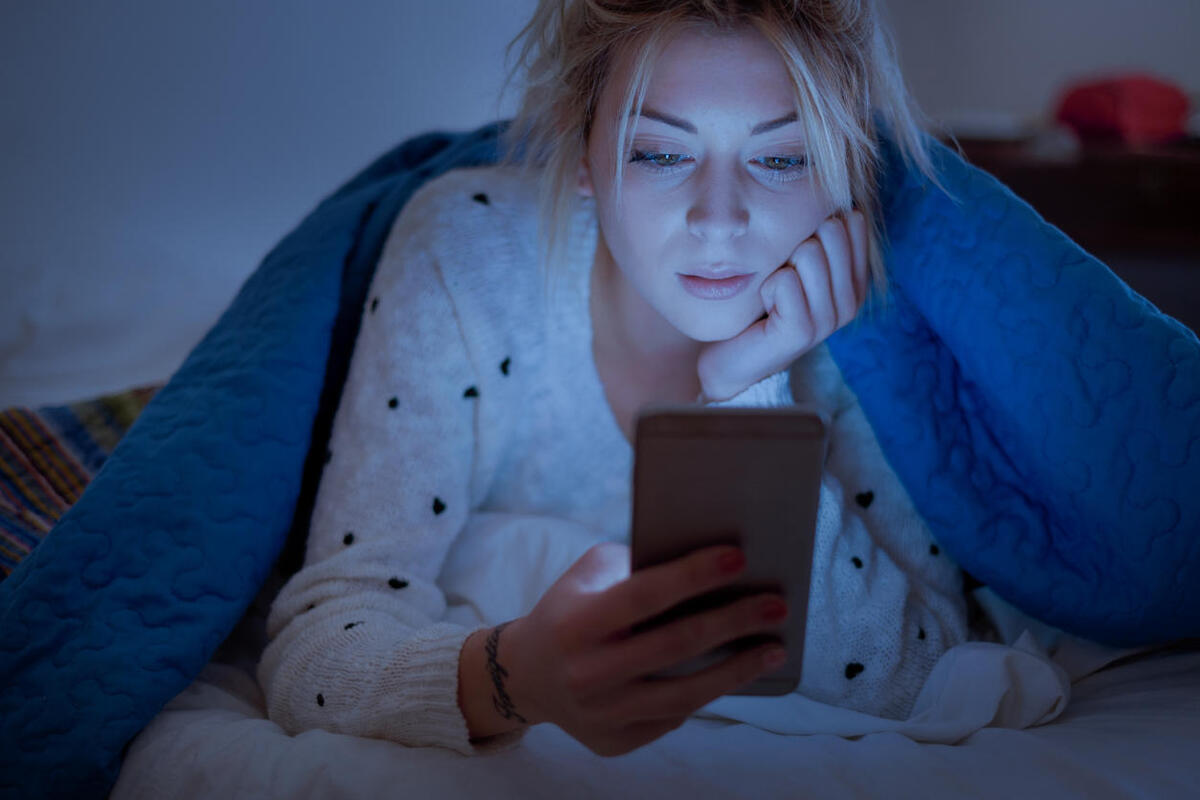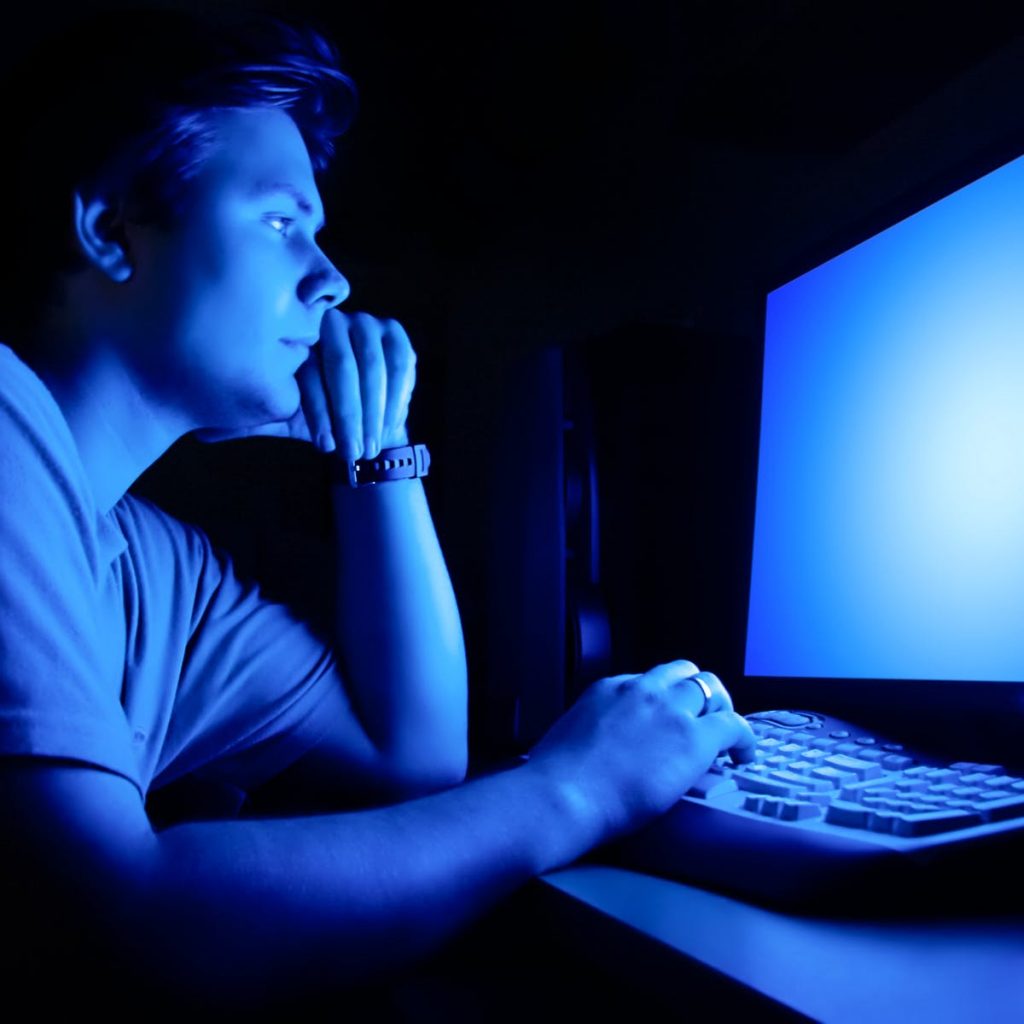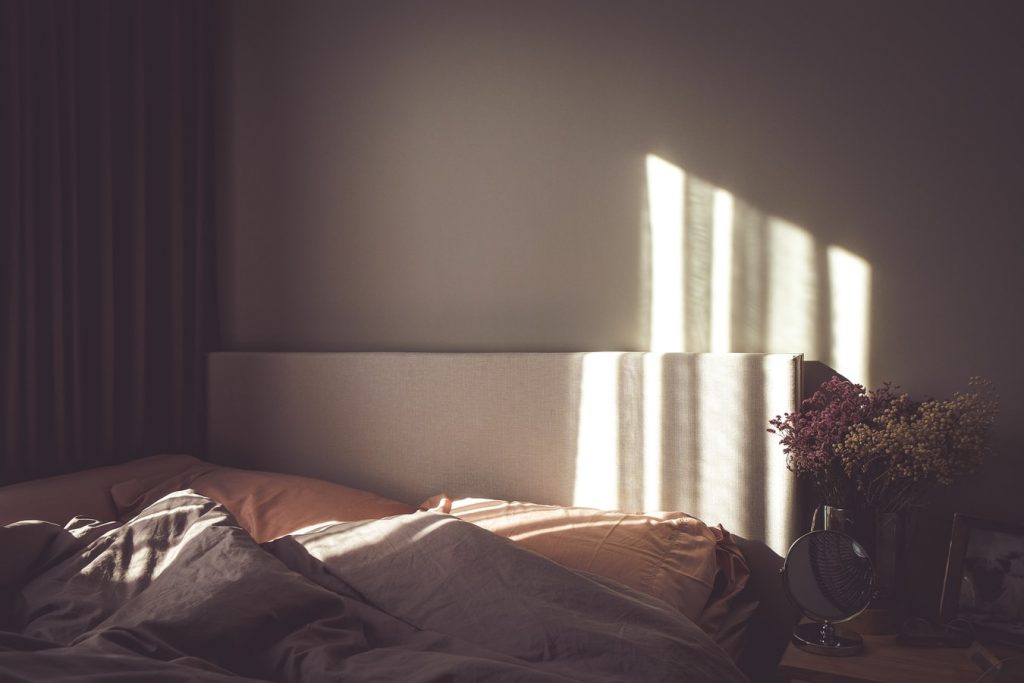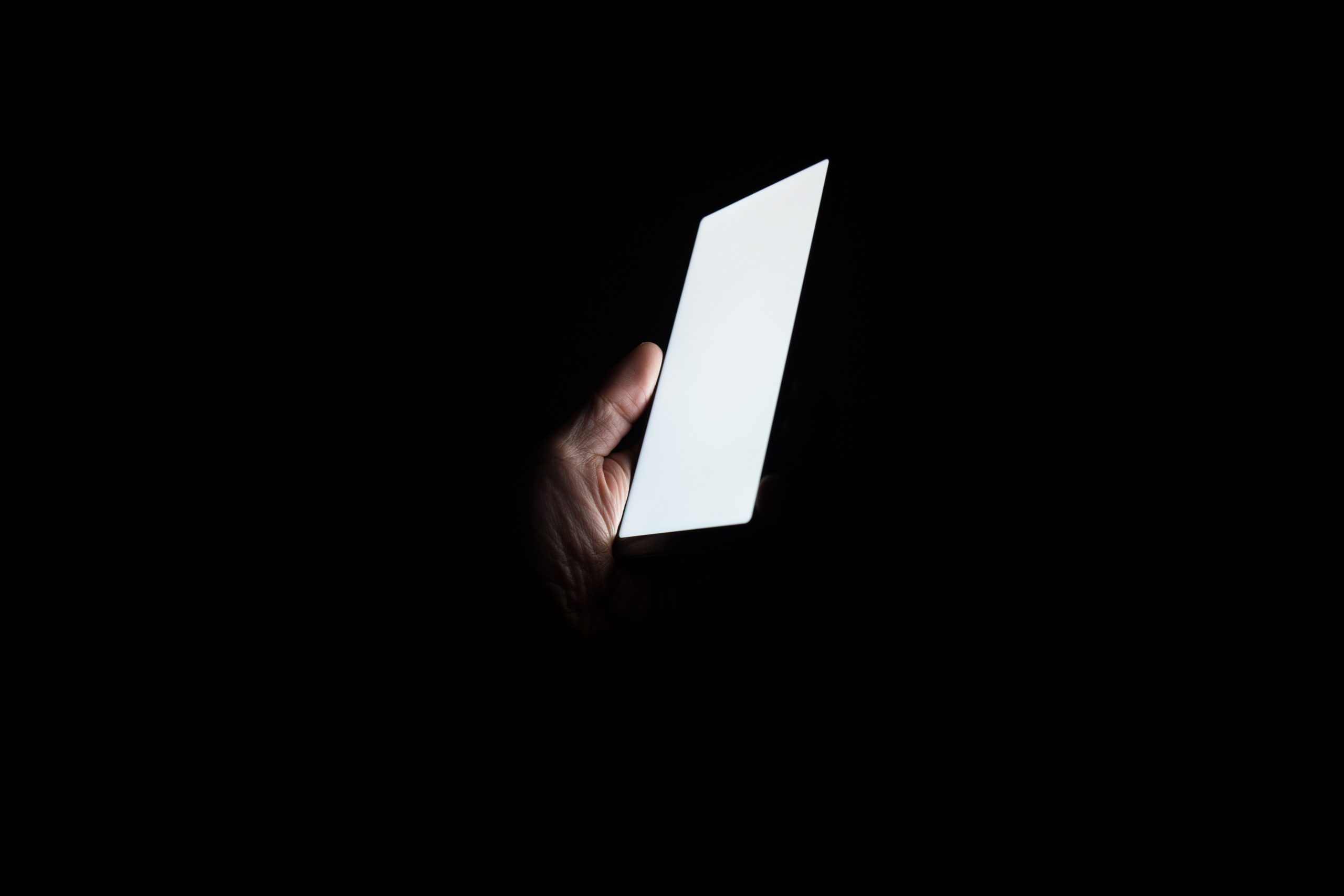
01 Nov Is Excess Blue Light Your Pandemic Side Effect?
Nighttime used to be dark. Now, however, it’s lit up by electric lights, television screens and smartphones. Our bodies, and in particular our sleep cycles, are suffering as a result.
45% of people admit to checking their phone after they have gone to bed, wreaking havoc with their sleep schedule. However, even if you’re more regimented with yourself and don’t go on your phone in bed, your tech use in the hours leading up to the end of the day can also negatively impact your sleep.
The blue light emitted by screens is largely to blame. In fact, last year California declared October 10th to be an annual blue light awareness day, in efforts to address our absorption in our screens, and draw attention to the hazards of this.

Blue light alone isn’t bad. In fact, it stimulates the brain more than any other wavelength of light. However, it is this ability to boost our attention and alertness which makes it such a threat to our sleep schedules.
Our body has an internal clock. Made up of multiple individual 24 hour cycles (scientifically termed ‘circadian rhythms’), this is what coordinates our mental and physical systems in the body. For example, they tell our body when to produce digestive proteins according to when we typically eat.
Each of these rhythms contribute towards one central, principal, body-clock in the brain: the ‘circadian pacemaker’. Hence for us to function optimally, the individual circadian rhythms must be aligned.
However, the circadian pacemaker can be influenced by its external environment. For example, our sleep cycles are synchronised with daylight patterns: we know that darkness means it’s time to sleep.
Blue is a wavelength of light that belongs to daytime; blue light from the sun is what wakes us up in the mornings. Consequently, the blue light emitted from our screens tricks our brains into thinking its daytime. This heightens our alertness levels and makes us struggle to fall asleep, even if we are physically tired.

Messing with your sleep schedule has more adverse effects than just leaving you groggy. Harvard researchers linked diabetes and potentially obesity to shifting circadian rhythms. Furthermore, depression and cardiovascular problems have also been linked to not getting enough sleep, which can be brought on by over-exposure to blue light.
It is because of this that California held their second annual blue light awareness day earlier this month. The day encourages people to be more wary of the effects blue light can have on them, and to take measures to keep themselves healthy.
The best thing you can do for the sake of your sleep schedule is to avoid using electronic devices two, if not three, hours before you go to bed. This will allow sufficient time for your brain to wind down and to recognise that it is night time. Try to create a bedtime routine that doesn’t incorporate screens, and find ways to end the day other than watching TV or browsing social media.
If you really want to observe the effects of blue light on your sleep pattern, try a digital detox. Removing tech from your routine completely will show you just how much better you sleep without it, and encourage you to be more mindful of your use in the future.
There are filters you can get, and ‘night-shift’ mode, so that the blue light does not affect you so much, but it is a far more sustainable and healthy solution to address your screen use instead.
And ultimately, try to ensure that the majority of your blue light dosage is coming from actual daylight! Take a break from screens and get outside in the daytime. There is far more blue light in sunlight than emitted from our screens, so make the most of its energising and alertness-boosting properties in the daytime, and enjoy the dark at night.





Sorry, the comment form is closed at this time.